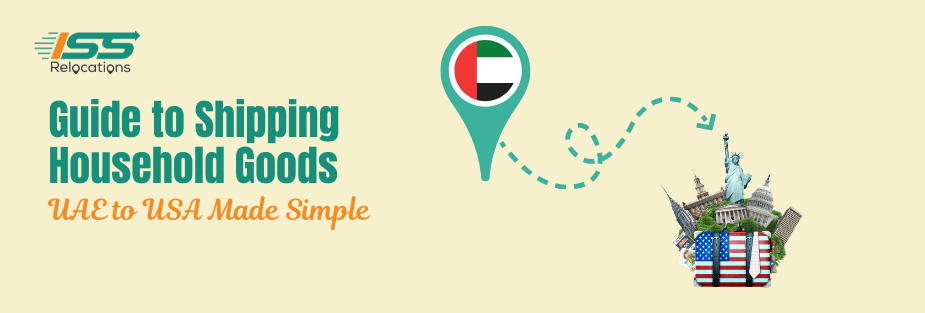
Expert Relocating Tips for Moving to France
Moving to France—a dream for many, filled with visions of quaint cafés, stunning landscapes, and a rich cultural tapestry. However, relocating to France is a major life decision that comes with its own set of challenges and rewards. Preparation is key, and having access to expert tips can transform a daunting process into a manageable and exciting adventure.
In this moving tips guide by ISS Relocations, we’ll explore essential tips for moving to France, from navigating the intricate French bureaucracy to understanding local customs and integrating into your new community.
If you find this guide useful and would like to know more about freight or international moving services to France, feel free to contact us regarding your requirements.
Best Tips for Moving to France
1. Understanding French Bureaucracy
The administrative landscape of France is notorious for its complexity. To ensure a smooth transition, it’s essential to familiarize yourself with the key bureaucratic processes well ahead of your move.
Visa and Residency Requirements
Moving to France starts with the right paperwork. Depending on your nationality and the purpose of your stay, you may need different types of visas and residency permits:
- Short-term visas for tourists or business trips that don’t allow you to live in France permanently.
- Long-term visas and residency permits (titre de séjour) for those planning to stay longer than a few months. These are crucial for securing employment, opening bank accounts, and more.
For non-EU citizens, the process involves gathering various documents such as proof of accommodation in France, a valid passport, and evidence of financial means. The French consulate in your home country is the starting point for these applications.
Starting Early with Documentation
The key to navigating French bureaucracy is to start the process early:
- Gather documents: Collect all necessary documentation such as birth certificates, marriage certificates, and academic records, which may need to be translated into French and certified.
- Appointments and timelines: Schedule appointments with the French consulate and local prefecture well in advance as slots can fill up quickly.
- Legalizations and Apostille: Some documents may need legalization or an Apostille to be recognized in France. Understanding these requirements can save you significant time and effort.
Understanding and preparing for these administrative hurdles in advance will pave the way for a smoother adjustment to life in France, minimizing surprises and bureaucratic delays that could impact your settling-in phase.
2. Choosing the Right Location
Selecting where to live in France is a decision that can dramatically influence your lifestyle and satisfaction with your relocation. Here are some key factors to consider and how different regions might align with your preferences and needs.
Urban vs Rural Settings
- Urban areas like Paris, Lyon, and Marseille offer vibrant cultural experiences, extensive public transportation, and a plethora of dining and entertainment options. They are ideal for those seeking a fast-paced lifestyle and easy access to amenities.
- Rural areas provide a quieter life, often with more space and natural surroundings. Regions such as Dordogne and Normandy are popular among expats who prefer scenic landscapes and a slower pace of life.
Cost of Living Variations
- Paris is known for its higher cost of living, including rent and daily expenses. However, it also offers higher salaries compared to other parts of France.
- Smaller cities and towns, such as Toulouse or Bordeaux, can offer a more affordable lifestyle with the benefits of urban living minus the Parisian price tag.
Proximity to Essential Services
- Schools: For families, access to quality education is crucial. France offers a range of international schools, especially in major cities, which cater to different national curriculums.
- Healthcare facilities: France’s healthcare system is one of the best in the world. Living close to well-equipped healthcare facilities can be a priority, especially for those with medical needs.
- Work opportunities: Proximity to employment opportunities can influence your choice, especially in sectors like technology, which is booming in cities like Paris and Nice.
Highlighting Popular Expat Destinations
- Paris, the capital, is the epicenter of culture, fashion, and business, attracting a diverse international community.
- Nice and the French Riviera appeal to those looking for sunshine and a Mediterranean lifestyle.
- Lyon is a culinary haven with a robust job market, particularly in the pharmaceutical and biotech industries.
- Brittany and Normandy attract those looking for a blend of British and French cultures, with their dramatic coastlines and historical sites.
Choosing the right location is more than just finding a place to live; it’s about creating a home in a setting that resonates with your personal and professional aspirations.
3. Financial Considerations
A successful relocation to France involves not only emotional preparation but also thorough financial planning. Here’s what you need to know about managing your finances as you plan your move to France.
Budgeting for the Move
- Moving Costs: The cost of moving internationally can vary widely depending on the volume of goods you’re shipping, the distance, and the level of service you choose. Getting quotes from several international moving companies, like ISS Relocations, can help you budget effectively.
- Living Expenses: Once in France, your daily living expenses can be different from what you’re used to. It’s important to research the typical costs in your new locality for rent, groceries, transportation, and leisure activities to create a realistic monthly budget.
Opening a French Bank Account
- Necessities for Non-Residents: As a non-resident, opening a bank account can be challenging but it’s essential for managing your finances in France. You’ll need documents such as your passport, proof of address (in France), and possibly a proof of earnings or a reference from your home bank.
- Benefits: A local bank account will make it easier to pay bills, receive salary, and handle everyday transactions without the high fees associated with international banking.
Understanding and Preparing for French Taxes
- Income Tax: Knowing the French tax system is crucial. France has a progressive tax rate, and you may also need to declare your worldwide income depending on your residency status.
- Wealth Tax: France imposes a wealth tax on residents whose global net worth exceeds a certain threshold.
- Social Security Contributions: These are mandatory and cover health, retirement, and other social benefits. Understanding these can help you estimate net income and necessary budget adjustments.
By carefully planning your budget, setting up the right banking structures, and understanding the local tax obligations, you can avoid unexpected financial hurdles and enjoy your new life in France with peace of mind.
4. Packing and Shipping Essentials
When moving to France, the logistics of what to bring versus what to leave behind can significantly influence the ease of your transition. Here’s how to navigate packing and choosing the right international moving company.
What to Bring and What to Leave
- Essentials: Prioritize items that are difficult or expensive to replace, such as prescription medications, specialized tools for work, and certain electronics compatible with European voltage standards.
- Furniture and Appliances: Consider the size of homes in France, which may be smaller than you’re used to. Measure and evaluate whether large furniture pieces are practical to bring or if it might be more cost-effective and convenient to purchase new items locally.
- Clothing: France has distinct seasons. Pack a variety of clothing to accommodate warm summers and cold winters, especially if moving to regions with more extreme temperatures like the Alps or the Mediterranean coast.
Choosing the Right International Moving Company
- Reputation and Reliability: Look for companies with positive reviews and a strong track record. Ensure they have experience in international relocations, particularly to France.
- Services Offered: Consider whether you need full-service options (packing, unpacking, storage, etc.) or just basic shipping. Companies like ISS Relocations offer tailored services to fit diverse needs and budgets.
- Insurance and Protection: Check what kind of insurance is offered for your belongings during transit. Opt for a policy that provides adequate coverage against loss or damage.
Adapting to French Norms and Home Sizes
- Electrical Goods: Check the compatibility of your electronic devices with French electrical standards (220-240 volts, 50 Hz).
- Cultural Considerations: Be aware of any cultural norms that might affect what you should bring. For example, very bright or ostentatious home decor might not fit as well in more conservatively styled French homes.
Properly planning your packing and shipping strategy can alleviate much of the stress associated with moving. By understanding what to bring, selecting the right movers, and considering the nuances of French life and homes, you set the stage for a smoother and more enjoyable relocation experience.
Looking to Move to France?
Start your relocation journey stress-free by contacting us today!
5. Settling In: Integrating into French Culture
Successfully moving to France involves more than just unpacking boxes; it’s about integrating into a new culture and lifestyle. Here’s how you can ease into French society and make the most of your new life.
Language Barriers and Learning French
- Language Importance: French is the primary language spoken in all aspects of daily life, from grocery shopping to accessing healthcare. A basic knowledge of French is crucial for everyday interactions and is deeply appreciated by locals.
- Language Courses: Consider enrolling in French language courses before and after your move. Many communities offer language classes suited to various levels, and there are numerous online resources to help you improve.
Cultural Norms and Social Etiquette
- Greetings: Familiarize yourself with the common French greeting of a light handshake or “la bise” (kissing on the cheek), depending on the region and the level of familiarity.
- Dining Etiquette: Meals are a focal point of French social life. Be punctual and remember it’s customary to finish everything on your plate as a sign of appreciation.
- Dress Code: French people often dress more formally than in other countries for everyday activities. Observing and adapting to local fashion can help you blend in more easily.
Networking and Socializing Tips to Feel at Home
- Expat Communities: Engage with local expat communities, which can be found in most major cities. These groups provide a support network and are a good source of local information.
- Local Events and Activities: Participate in local events and activities to meet people and practice your language skills. Festivals, markets, and neighborhood gatherings are great places to start.
- Volunteering: Volunteering can be a meaningful way to meet people and integrate into the community while giving back.
Integrating into French culture is a gradual and rewarding process. By embracing the language, understanding the social norms, and actively participating in community life, you’ll not only ease your transition but also enrich your expatriate experience, making your new French life a fulfilling adventure.
6. Health Care and Insurance
Navigating the French healthcare system is a critical component of your relocation. Renowned for its excellence and accessibility, understanding how to access these services can ensure you and your family remain healthy and secure in your new environment.
Navigating the French Healthcare System
- Registration: Upon arrival, you’ll need to register with the local health authority, the CPAM (Caisse Primaire d’Assurance Maladie), to access healthcare services. This involves submitting various documents, including proof of residence and identity.
- General Practitioner (GP): It’s advisable to register with a GP soon after moving. Your GP will be your first point of contact for most medical issues and can refer you to specialists.
- Pharmacies: In France, pharmacies play an essential role in healthcare, often providing medical advice and minor treatments.
Registering for Health Insurance
- Public Health Insurance: Once registered with the CPAM, you’ll contribute to and benefit from France’s public health insurance, which covers a substantial part of medical costs. Additional private health insurance (mutuelle) can be purchased to cover the remaining costs not reimbursed by the state.
- European Health Insurance Card (EHIC): For EU citizens relocating to France, the EHIC card provides access to medically necessary, state-provided healthcare during a temporary stay in France.
Recommendations for Expat Health Insurance Options
- Private Health Insurance: If you’re not immediately eligible for state healthcare, private health insurance can cover you from the day you arrive. Various international insurers offer comprehensive plans tailored to expats.
- Top-up Policies: Consider a top-up policy if you find the coverage from the public system insufficient. These policies help cover additional costs and can provide access to private healthcare facilities.
Navigating the healthcare system in France can seem complex, but with proper preparation and understanding, you can take full advantage of one of the world’s best healthcare systems. This preparation ensures peace of mind, allowing you to focus on enjoying your new life in France.
7. Education and Family Considerations
Relocating to France with a family means ensuring your children’s education and adjustment are as smooth as possible. France offers excellent educational opportunities, but understanding the system and your options is key to making informed decisions for your family.
Overview of the French Educational System
- Structure: The French educational system is divided into three main stages: école maternelle (preschool), école élémentaire (elementary school), and collège (junior high), followed by lycée (high school). Education is compulsory from ages 3 to 16.
- Public vs Private Schools: Public schools are free for residents and provide a high standard of education. Private schools, including international schools, offer alternative curricula and languages, which can be beneficial for children who might return to their home country’s education system or move internationally in the future.
Adjusting Family and Children to New Surroundings
- Cultural Adjustment: Help your children adapt by encouraging them to engage in local activities and sports, which can also facilitate learning the language and making new friends.
- Support Networks: Look for expat community groups, which can be invaluable for connecting with other families who are also navigating the transition to a new school system and culture.
Choosing the Right School
- Location and Logistics: Consider the proximity of schools to your home and workplace. Traffic and school transport options can greatly influence your daily routine.
- Curriculum and Language: Decide if you want your child to be immersed in the French language and curriculum or if an international school that follows a familiar curriculum and language makes more sense for your family’s needs.
- Visits and Interviews: Where possible, visit schools and meet with teachers or administrators. This can provide insight into the school’s environment and ethos, helping you make a better-informed decision.
Moving to France with children requires careful planning and consideration of educational needs. By understanding the local education system, considering the cultural and logistical aspects, and connecting with other expat families, you can ensure a positive and enriching educational experience for your children.
8. Legal Requirements and Compliance
Understanding local laws and regulations is essential when relocating to France. From property laws to employment regulations, ensuring compliance can prevent legal issues and facilitate a smoother integration into French society.
Understanding Local Laws and Regulations
- Property Laws: If you plan to rent or buy property in France, familiarize yourself with the local property laws. These laws cover everything from lease agreements to tenant rights and property taxes.
- Employment Laws: For those moving to France for work, understanding employment law is crucial. This includes knowledge about contracts, working hours, holidays, and termination procedures. Ensure that your employment contract complies with French law and offers you all the statutory protections.
The Importance of Legal Advice
- Seeking Expertise: Consulting with a local lawyer can provide valuable insights and guidance on complying with French laws. Lawyers can assist with visas, residence permits, employment contracts, and other legal matters that arise.
- Legal Services: Utilize legal services offered by expatriate services, such as ISS Relocations, which can guide you through the complexities of French administrative and legal processes.
Property and Contractual Matters
- Rental Agreements: Understand the typical terms and conditions of rental agreements in France, such as deposits, maintenance responsibilities, and notice periods.
- Buying Property: If purchasing property, be aware of the legal and tax implications. The process typically involves a notary, who plays a crucial role in real estate transactions in France.
By arming yourself with knowledge and seeking the right legal advice, you can navigate the French legal landscape with confidence. This preparation not only protects you against potential legal pitfalls but also ensures that your move to France is as stress-free as possible, allowing you to focus on enjoying your new life.
9. Tips for Long-term Success in France
Ensuring long-term success in France goes beyond the initial move. It encompasses understanding how to sustain a fulfilling life, manage legalities, and maintain ties with your home country. Here’s how you can thrive in the long run.
Maintaining Ties with Your Home Country
- Communication: Stay connected with family and friends through regular calls, messages, and visits. This can provide emotional support and help combat feelings of homesickness.
- Financial Planning: Keep abreast of any obligations you may still have in your home country, such as taxes or investments. Consider consulting with a financial advisor to manage your assets effectively across borders.
Long-term Residency and Citizenship Considerations
- Residency Permits: Understand the requirements for renewing residency permits and what steps you might need to take to secure permanent residency.
- Citizenship: If considering French citizenship, familiarize yourself with the naturalization process, which typically requires proof of language proficiency and a continuous period of residency among other criteria.
Cultural Integration and Personal Growth
- Continuous Learning: Embrace the opportunity to continuously learn about French culture, language, and history. This will not only enrich your experience but also deepen your connection to your new home.
- Community Engagement: Get involved in local community activities and initiatives. This can lead to new friendships and opportunities, enhancing your sense of belonging and contribution.
Navigating Bureaucracy
- Stay Informed: French bureaucratic procedures can change. Stay informed about any updates or changes in laws that affect expatriates.
- Professional Help: Utilize services that specialize in assisting expats, such as ISS Relocations, which can provide invaluable assistance in navigating complex administrative tasks.
By taking these steps, you can ensure that your move to France is not just a fleeting adventure but a lasting, rewarding life change. From maintaining connections back home to embracing the local culture, these strategies will help you build a stable, integrated life in your new French home.
Conclusion
Relocating to France is a journey that goes beyond merely moving your belongings; it’s about crafting a new life in one of the world’s most culturally rich and picturesque countries. With the right preparation, understanding of local customs, and engagement with the community, you can transform the challenges of moving into opportunities for personal growth and exploration.
Remember, successful relocation is built on thorough preparation—from handling legal and financial obligations to integrating into the local culture. Each step you take in planning and adapting will contribute significantly to a smoother transition and a more fulfilling experience in your new home.
If you’re planning to move to France, consider reaching out to ISS Relocations for personalized planning and expert guidance. Our extensive experience and tailored services can help you navigate every aspect of your relocation, ensuring a stress-free move so you can start enjoying your new life in France with ease. Contact us today to find out more about how we can assist you in this exciting new chapter of your life!
Plan Stress-free Move with Top Moving Company in UAE - ISS Relocations

Frequently Asked Questions
How to prepare to move to France?
Preparing to move to France involves obtaining the right visa, organizing housing, packing, and understanding French culture and customs. ISS Relocations offers expert tips for moving to France, handling packing, shipping, and logistics to ensure a seamless transition.
Is moving to France a good idea?
France offers a high quality of life, world-class healthcare, excellent cuisine, and rich culture, making it a desirable destination. ISS Relocations simplifies the process with tailored relocation solutions, ensuring your move to France is stress-free and rewarding.
How to deal with French bureaucracy?
Dealing with French bureaucracy can be challenging, requiring thorough documentation and patience. ISS Relocations provides expert guidance and practical tips for moving to France, helping you navigate processes like visa applications and residency permits with ease.
What is the easiest way to move to France?
The easiest way to move to France is with professional help to handle visas, packing, shipping, and settling-in. ISS Relocations offers end-to-end services and personalized advice to make your move to France smooth and efficient.
Is France a good country to move to?
Yes, France is a fantastic country to move to, offering excellent education, healthcare, job opportunities, and vibrant cities. ISS Relocations provides comprehensive support and practical tips for moving to France, ensuring a successful relocation experience.
What are the immigration requirements for France?
Immigration requirements include obtaining the appropriate visa, proof of financial stability, and health insurance. ISS Relocations helps you meet these requirements and provides tailored support for your move with expert tips for moving to France.
How do I become a legal resident of France?
To become a legal resident, you must apply for a residency permit after entering on the appropriate visa. ISS Relocations assists with the paperwork and processes involved, providing valuable tips for moving to France and settling in as a legal resident.
Moving Company - Recent Blog
Stay informed and prepared for your next move with our latest blogs on moving services in the UAE. From expert packing tips to international relocation guides, ISS Relocations brings you up-to-date insights to make your moving experience smoother, safer, and stress-free.










